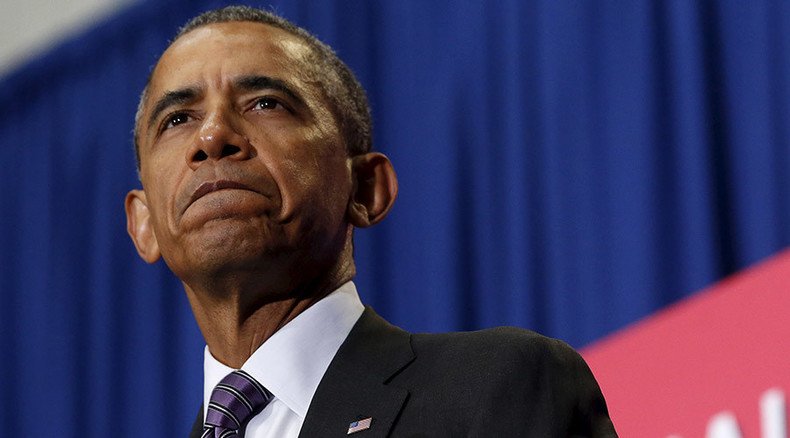US defense bill advances with $38 billion in extra war funds despite Obama veto threat

A bill authorizing US military and defense spending for the next fiscal year easily advanced in the Senate on Tuesday despite facing a veto threat from President Barack Obama over billions in war funding that bypasses federal spending caps.
In a 73-26 vote, the Senate voted to end debate regarding the $612 billion National Defense Authorization Act (NDAA), which easily acquired the 60 votes necessary to break a filibuster. The next vote is currently set for Wednesday, and the bill is expected to pass and make its way to President Obama, who must decide whether he will reject the proposal.
The House of Representatives already voted to approve the NDAA last week.
Rand Paul lone Republican to vote against defense authorization bill; Rubio lone senator to miss it
— Manu Raju (@mkraju) October 6, 2015The fate of the legislation is unclear, however, as Obama has promising to veto it. The president’s disapproval stems from the fact that lawmakers added an extra $38 billion in war funding that bypasses spending caps created via the 2011 Budget Control Act, also known as the sequester. That budgetary agreement placed restrictions on domestic and military spending, but the current NDAA allots billions in additional defense spending while leaving the domestic budget untouched.
The proposed NDAA, among other things, would allocate $600 million for the troubled training program meant to prepare Syrian rebels to battle the Islamic State (IS, formerly ISIS/ISIL) and approve more than $700 million to help the Iraqi government fight the extremist group, Fox News reported. It also grants a 1.3 percent pay increase to members of the military.
President Obama and other Democrats have argued that both military and domestic spending should be hiked to eliminate the sequester constraints, but Republicans have been resistant to the idea. If Obama does indeed veto the current NDAA, the question would be whether he could convince enough lawmakers not to override his veto. That would require 34 senators to vote against an override.
Despite the fact that 21 Democrats voted to advance the NDAA on Tuesday, Senate Minority Leader Harry Reid (D-Nevada) said any veto would hold.
“Our Democrats have stated without question if it comes time that we sustain a presidential veto, that will be done,” Reid said, according to the Hill newspaper.
Senator blocks State nominations over Secret Service scandal http://t.co/efGR6WCRT9pic.twitter.com/s57dJR7SUa
— RT America (@RT_America) October 6, 2015However, Republicans have pushed back heavily against Democrats, arguing that failing to approve the NDAA would put US troops and national security at risk.
“This is for the men and women of the military. This is to defend the nation. This would be one of the most disgraceful acts of any president,” said Senator John McCain (R-Arizona), according to the Huffington Post.
“Why are Democrats opposing a bill that would authorize the funding that our troops need to operate?” added Senator John Thune (R-South Dakota). “Democrats have decided that since they can’t get everything they want, they’re going to take their ball and go home.”
Thune went on to accuse the president of favoring Iran over American troops.
“While President Obama is threatening to veto a bill that funds our armed forces, he has agreed to a deal with Iran that gives Iran access to over $100 billion to fund terrorism,” he said. “Now, above all in the wake of this Iran deal and growing chaos in the Middle East, holding up funding for our troops by blocking this authorization bill is unacceptable.”












